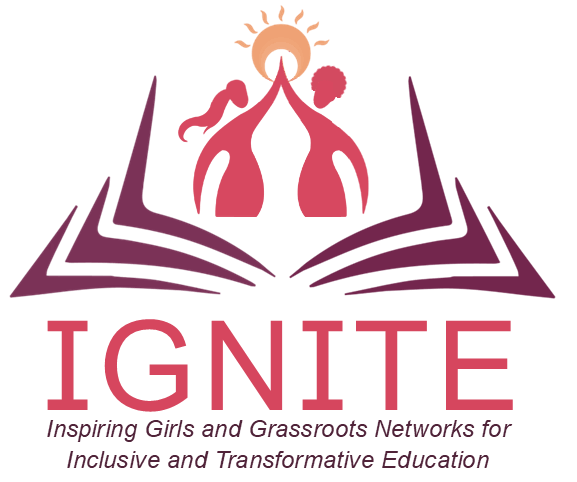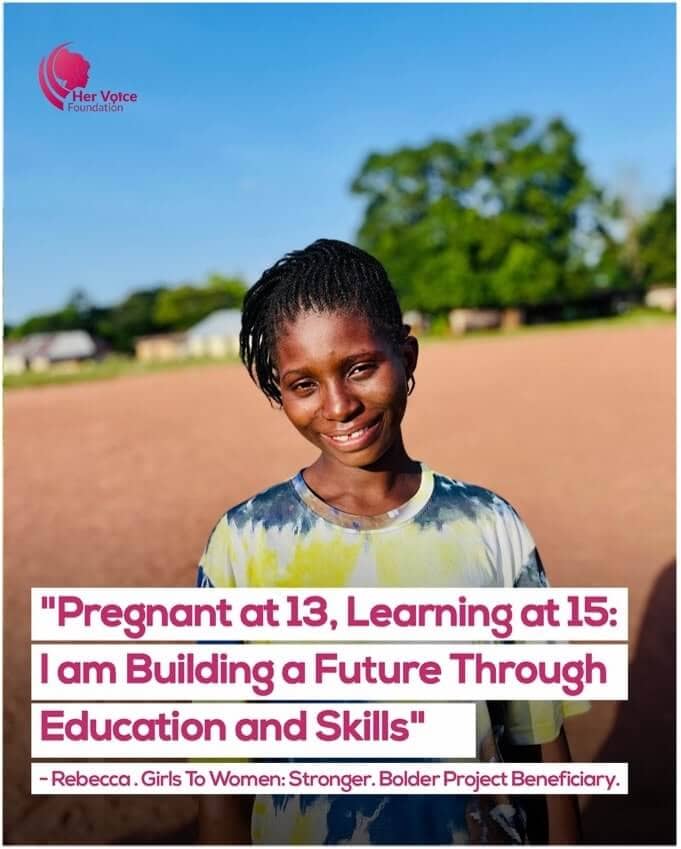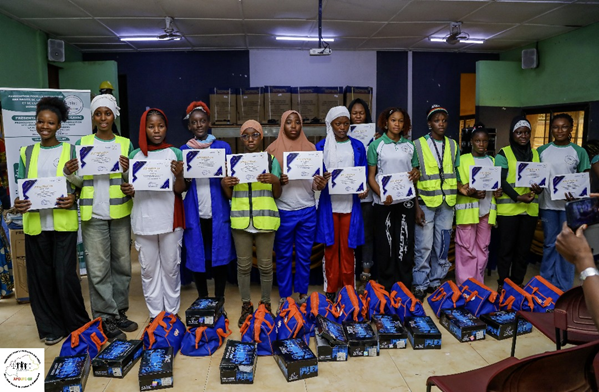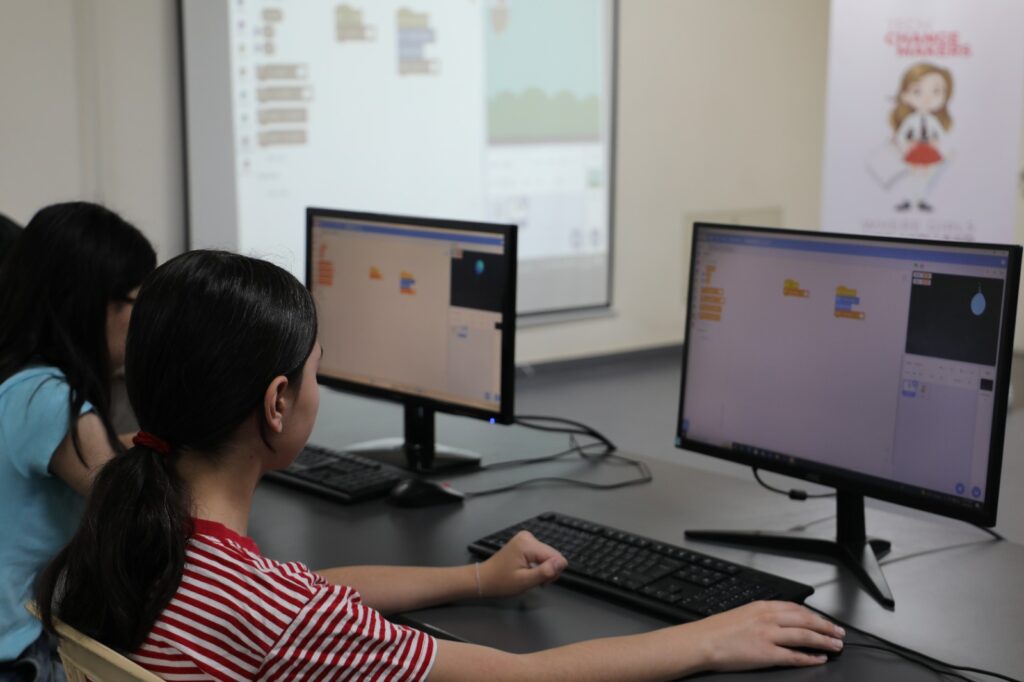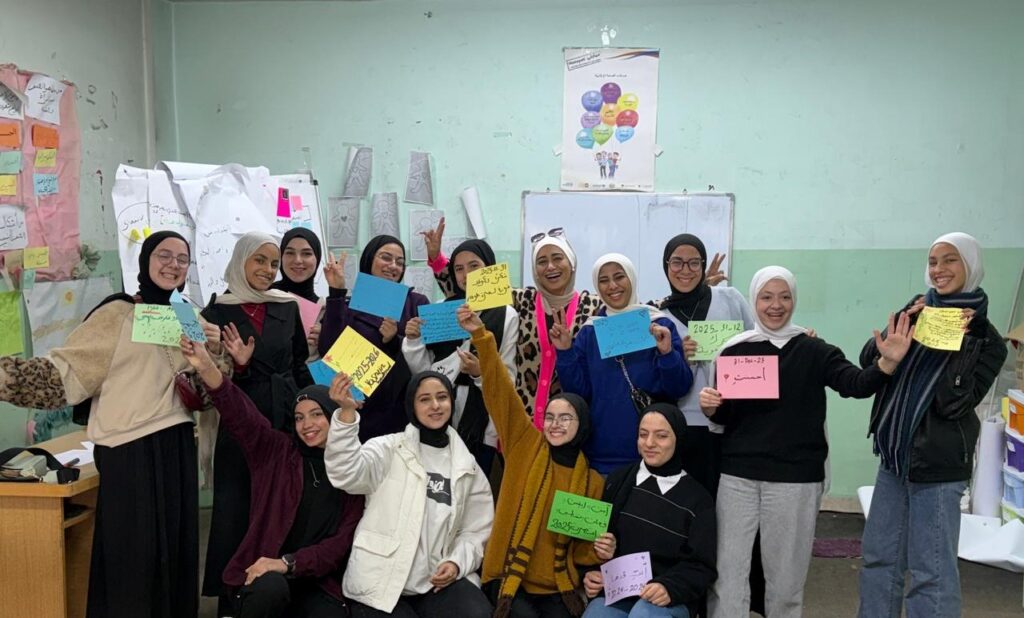A transformation is unfolding in the remote communities of Obanliku, Bekwarra, and Obudu in Cross River State, Nigeria, where harmful cultural norms, economic hardships, and gender-based violence have long limited the opportunities available to adolescent girls. For years, teenage pregnancy, forced marriages, and systemic discrimination have forced many young girls out of school, depriving them of education, support, and the chance for a better future. Through the Girls to Women: Stronger. Bolder project, spearheaded by Her Voices Foundation with support from UAF-Africa through the IGNITE Consortium and funded by the Agence Française de Développement, a new reality is taking shape.
“Getting pregnant at 15, I thought my life was over. Now, I have a second chance to lead my own future.” – Blessing
For Blessing, Patricia, Rebecca, Fidelia, Regina, and Margaret, becoming mothers as teenagers meant abandonment, isolation, and the abrupt end of their education. In their communities, teen pregnancy is often met with stigma, leaving young mothers without financial support, access to schooling, or the resources to provide for their children. Many are forced into child marriage or unsafe labour, perpetuating the cycle of poverty and gender inequality. With no clear path forward, their futures seemed predetermined until they found Girls to Women: Stronger. Bolder.
These young women carry a story of strength, and victory. Margaret abandoned by her partner and her family at 15, found inspiration in the kindness of a nurse during childbirth and now dreams of becoming a healthcare professional to support others like her. Regina, pregnant at just 13, once believed her life was over, but through hairdressing training and sexuality education, she is learning to make informed decisions about her body and financial future. “I now have a second chance to shape my own future,” Said Regina.
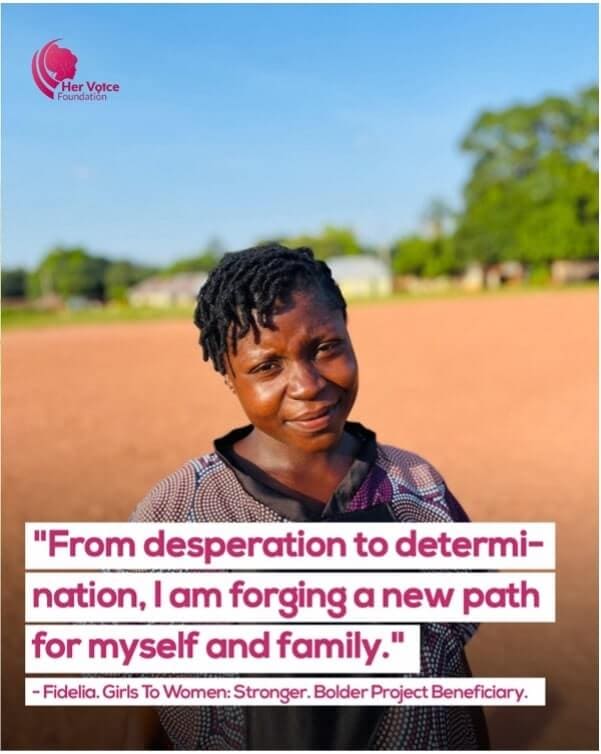
Girls to Women: Stronger. Bolder aims to empower girls to defy societal limitations, reclaim their rights, access opportunities, and carve out a future on their own terms. It offers three core interventions as a holistic response to the barriers faced by them in the State to ensure that young mothers, survivors of forced marriages, and girls at risk of gender-based violence can break free from cycles of oppression and build independent lives.
The project has a three-fold approach: education, entrepreneurship, and community mobilisation. Through Second-Chance Education, girls who drop out of school can return through flexible learning schedules that accommodate their caregiving and financial responsibilities. They receive literacy, numeracy, and adolescent sexuality education, empowering them with knowledge and confidence. Secondly, the project prioritises Entrepreneurship Skill Training, equipping the girls with marketable skills such as tailoring, sewing, and small-scale business management. After training, they receive start-up kits to establish businesses, creating a pathway to financial independence. Lastly, the project drives Community Mobilisation and Advocacy, engaging traditional leaders, parents, and young men to challenge harmful gender norms and promote policies that support girls’ rights, education, and safety.
“I will become a professional tailor. I will provide for my child. I will not be a victim of my past.” – Patricia
The impact of Girls to Women: Stronger. Bolder. is not just personal; it ripples through families, communities, and generations to come. As more girls break free from cycles of limitation and oppression, they are shaping a future where dignity, independence, and hope are not privileges but fundamental rights. The program’s three transformation pillars reinforce not only economic independence but also stronger leadership and greater representation in decision-making spaces. As their journeys unfold, these young women become role models, mentors, and advocates for change, inspiring others to follow in their footsteps and creating a lasting legacy of empowerment.
